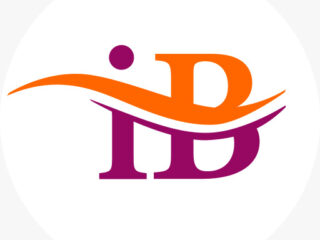Privacy Regulations Across the Globe: A 2024 Overview

Introduction to Privacy Regulations
Privacy regulations are a collection of laws and policies aimed at safeguarding individuals’ personal data and ensuring responsible data usage by organizations. In an increasingly digitized society, where vast quantities of personal information are collected, stored, and processed, privacy regulations become vital. These rules govern how entities handle personal data, dictating the measures they must implement to protect privacy rights and promote data security.
The surge in data breaches and unauthorized data usage has raised significant concerns regarding data privacy. Recent incidents have illustrated the potential misuse of sensitive information, making individuals more aware of their rights and the need for legislative safeguards. As a result, many countries have adopted comprehensive frameworks designed to regulate data processing activities, outlining the responsibilities of data controllers and processors.
Legislation plays a crucial role in addressing these concerns and establishing accountability. Regulations such as the General Data Protection Regulation (GDPR) in the European Union and the California Consumer Privacy Act (CCPA) in the United States exemplify efforts to create robust legal standards that govern data handling practices. These frameworks are designed not only to protect individual privacy rights but also to enhance transparency and trust in digital transactions.
Key terms such as “personal data,” “data processing,” and “data subject” are essential to understanding privacy regulations. Personal data refers to any information that relates to an identified or identifiable individual. Data processing encompasses a range of actions performed on personal data, from collection and storage to sharing and deletion. A data subject is the individual whose personal data is being processed. Such definitions are foundational when discussing specific regulatory frameworks and their implications.
The Importance of Data Privacy in 2024
In 2024, the importance of data privacy cannot be overstated, given the increasing reliance on digital technologies for both personal and professional interactions. With the enhancement of connectivity and the expansion of data collection practices, individuals are more vulnerable to data breaches than ever before. Not only does this pose significant risks to personal privacy, but it can also lead to dire consequences for organizations that fail to implement adequate protective measures. The ramifications of such breaches can result in financial losses, reputational damage, and legal repercussions.
Recent high-profile data breach incidents have underscored the vulnerabilities inherent in our digital landscape. Major corporations have fallen victim to cyberattacks, exposing sensitive customer information and shaking public trust. These incidents serve as startling reminders of the necessity for robust data privacy regulations that protect individuals’ personal information. In response to these alarming trends, there has been a notable increase in awareness among the public regarding their privacy rights and the potential misuse of their data. Individuals are increasingly questioning how their data is being used and are demanding greater transparency from organizations.
The technological advancements of 2024 only amplify these concerns. As artificial intelligence, machine learning, and the Internet of Things continue to evolve, they generate unprecedented amounts of data, often without individuals’ explicit consent. This fuels fears of surveillance and uncontrolled data utilization. Consequently, the growing consciousness around data privacy has prompted calls for stricter regulations and the enforcement of ethical data handling practices across industries. This context not only highlights the significance of data privacy but also emphasizes the vital role that effective regulation plays in safeguarding personal information and fostering a culture of trust.
Overview of Major Global Privacy Regulations
As concerns over data privacy continue to escalate, various regions around the world have implemented robust privacy regulations aimed at safeguarding personal information. Among the most significant of these is the General Data Protection Regulation (GDPR) enacted by the European Union (EU) in May 2018. Designed to enhance individual privacy rights, the GDPR mandates that organizations obtain explicit consent from users before collecting or processing their personal data. Furthermore, it grants consumers a range of rights, including the right to access, rectification, erasure, and data portability. The regulation imposes stringent penalties on non-compliant organizations, emphasizing the seriousness with which the EU approaches data protection.
In the United States, the California Consumer Privacy Act (CCPA) stands out as a pivotal state-level regulation. Effective from January 2020, the CCPA empowers residents of California with rights that mirror some elements of the GDPR, such as the right to know what personal data is being collected about them and the right to opt-out of the sale of their information. Although the CCPA is limited to California, its influence has prompted similar legislative efforts in other states, reflecting a growing recognition of consumer data rights across the nation.
Beyond the EU and California, multiple countries have instituted their own privacy regulations. For instance, Brazil’s Lei Geral de Proteção de Dados (LGPD) took effect in September 2020, establishing comprehensive rules for personal data processing that align closely with the GDPR. Likewise, Canada has seen advancements with its Personal Information Protection and Electronic Documents Act (PIPEDA), which focuses on consumer consent and data protection. As more countries adopt and adapt privacy laws, it becomes evident that building a cohesive and responsible framework for data protection is a global priority that resonates with citizens and businesses alike.
Comparative Analysis of Regional Privacy Laws
The landscape of privacy regulations varies significantly across the globe, reflecting diverse cultural values, legal frameworks, and technological advancements. This analysis focuses on four key regions: North America, Europe, Asia, and Africa, shedding light on the similarities and differences in their approach to privacy.
In North America, privacy laws are primarily governed by a patchwork of federal and state regulations. The United States lacks a comprehensive federal privacy law akin to the General Data Protection Regulation (GDPR) in Europe. Instead, it adheres to sector-specific regulations, such as the Health Insurance Portability and Accountability Act (HIPAA) for healthcare data and the California Consumer Privacy Act (CCPA) as a progressive state-level initiative. This decentralized system results in inconsistent privacy protections across states, posing challenges for organizations operating in multiple jurisdictions.
Europe’s approach is characterized by the GDPR, which sets a high standard for data protection and privacy. It emphasizes individual rights, requiring organizations to obtain explicit consent for data processing and facilitating the right to access and erasure. The GDPR has influenced many nations worldwide, pushing them towards similar regulations, creating a more uniform standard in terms of privacy.
In Asia, the situation is more varied. Countries like Japan and South Korea have established robust privacy laws that incorporate principles similar to the GDPR. However, other nations still grapple with developing effective privacy regulations, often influenced by local cultural factors. For instance, China’s Personal Information Protection Law (PIPL) mirrors aspects of GDPR but reflects the country’s unique governmental structure and social values.
Finally, African nations are increasingly recognizing the importance of privacy and data protection, with several countries implementing comprehensive regulations. The African Union’s Digital Transformation Strategy promotes the establishment of data protection frameworks, yet the enforcement and adoption of these laws can vary significantly between countries.
Overall, while there are common threads in the evolution of privacy laws across these regions, the underlying cultural, legal, and technological landscapes continue to shape distinct regulatory environments.
Emerging Privacy Regulations in 2024
As the digital landscape continues to evolve, privacy regulations are likewise adapting to address new challenges in data protection and consumer rights. Emerging privacy regulations in 2024 signify a global trend towards stricter oversight and enhanced protection of personal data. Governments are increasingly recognizing the importance of safeguarding individual privacy, as concerns over data breaches and misuse of personal information grow. One key development anticipated this year is the introduction of comprehensive privacy laws in various countries that align with the ethos of the General Data Protection Regulation (GDPR) enacted by the European Union.
Countries such as India, Brazil, and California are expected to enact or enhance their privacy frameworks in 2024. For instance, India’s Personal Data Protection Bill is poised to receive crucial endorsements, incorporating principles of consent, data minimization, and user rights that echo the GDPR. Similarly, Brazil’s General Data Protection Law (LGPD) is likely to see revisions aimed at bolstering compliance measures for organizations handling personal data. These new regulations reflect a growing consensus on the necessity for robust data protection mechanisms in a globalized economy.
Moreover, the introduction of sector-specific regulations is another trend expected to emerge in 2024. Industries dealing with sensitive data, like healthcare and finance, may face intensified scrutiny and specific requirements tailored to their operational realities. Additionally, the rise of artificial intelligence and machine learning technologies creates nuances in the interpretation of privacy laws, prompting legislation aimed at addressing the complexities involved in data processing.
As privacy rights evolve and become more pronounced, organizations must anticipate the impact of these emerging regulations on their operational practices. Maintaining transparency and ensuring compliance will be critical to fostering trust and protecting consumer data in this new regulatory landscape.
Challenges in Implementing Privacy Regulations
The implementation of privacy regulations poses significant challenges for organizations across various sectors. One of the foremost obstacles is the compliance costs associated with adhering to these laws. Organizations often need to invest substantial resources in upgrading their systems, training their staff, and establishing new processes to ensure that they are in line with regulations. Even small businesses can find these costs overwhelming, potentially detracting from their operational efficiency and ability to innovate.
Furthermore, the lack of resources can significantly impede an organization’s capacity to comply with privacy regulations. Many businesses, particularly smaller firms, may not have dedicated personnel or financial means to devote to privacy compliance efforts. This lack of capability can lead to inadequate data protection practices, increasing the risk of breaches and the subsequent repercussions that could follow. Companies are also challenged by the human factor, as employee understanding and adherence to data protection policies vary greatly, leading to inconsistent application of required standards.
Additionally, managing data in a rapidly evolving technological environment presents further complications. The pace at which technology advances often outstrips the regulatory adaptation process, resulting in a mismatch between available tools and the required compliance measures. Organizations, therefore, find themselves needing to navigate an uncertain landscape marked by shifting regulations and the advent of new technologies such as artificial intelligence and big data, which introduce unique data protection challenges.
The potential consequences of non-compliance are severe, ranging from substantial fines to reputational harm. This creates a complicated paradox, as the pressure to comply can push organizations to divert even more resources from their core functions. In light of these challenges, it is essential for companies to proactively strategize their compliance efforts and invest in scalable solutions that address both current regulations and future changes in the privacy landscape.
The Role of Technology in Privacy Compliance
In today’s digital landscape, the interplay between technology and privacy compliance has become increasingly significant. Organizations are now faced with a myriad of regulations that dictate how personal data should be collected, stored, and processed. To navigate this complex environment, many companies are leveraging advanced technological solutions designed specifically for privacy compliance. These tools facilitate efficient data management, enable effective encryption methods, and support comprehensive compliance reporting.
One of the key advancements in technology related to privacy compliance is the development of data management software. These platforms help organizations categorize and track personal information, ensuring that data is organized and accessible while also complying with various regulations. By utilizing artificial intelligence (AI) and machine learning algorithms, data management systems can automatically identify sensitive information, assess risk levels, and suggest necessary actions to mitigate potential breaches. This proactive approach not only minimizes compliance risks but also streamlines the data handling process.
Encryption technologies are another essential aspect of privacy compliance. They provide organizations with a robust method to protect sensitive data from unauthorized access, making it integral to safeguarding personal information. By implementing secure encryption protocols, businesses can encrypt not just data at rest but also during transmission. This dual-layer of security plays a vital role in maintaining customer trust and adhering to regulations that require stringent data protection measures.
Moreover, compliance reporting tools have emerged as crucial resources in the privacy regulation landscape. These technologies enable organizations to generate reports demonstrating their adherence to privacy laws and regulations, simplifying potential audits and assessments. Through automation, compliance reporting solutions reduce the burden on organizations, allowing them to focus on improving their overall data privacy strategies.
As privacy regulations continue to evolve, adopting a proactive approach to data privacy through technological solutions will be vital for organizations striving to remain compliant. Embracing these advancements positions businesses to better protect customer data while fostering a culture of transparency and responsibility.
Global Cooperation and the Future of Privacy Regulation
In an increasingly interconnected world, the significance of international cooperation for enforcing privacy regulations cannot be overstated. With rapid advancements in technology and a growing emphasis on data protection, nations face challenges that transcend borders, demanding collaborative approaches to safeguard citizens’ data effectively. Whether addressing issues of data breaches, cross-border data flow, or the regulation of emerging technologies, global cooperation becomes essential to ensure comprehensive protections.
Several initiatives and agreements have emerged to promote harmonization of privacy laws worldwide. One notable example is the General Data Protection Regulation (GDPR) established by the European Union, which has set a precedent for stringent data protection standards. The GDPR not only influences data privacy within EU member states but also impacts global corporations that handle the data of EU residents. Similarly, the Asia-Pacific Economic Cooperation (APEC) has introduced the Privacy Framework, which seeks to enhance privacy protections for cross-border data flows among member economies. Such frameworks underscore the necessity for countries to align their privacy regulations to facilitate international business while ensuring adequate protection for individuals.
As nations continue to negotiate agreements, the future of privacy regulation will likely see further collaboration streamlined through multilateral discussions and supernational organizations. The establishment of binding international agreements could lead to a more uniform approach to data privacy, addressing the bifurcation of privacy standards that currently exists. Furthermore, countries are beginning to share best practices and insights, enhancing their regulatory frameworks’ efficacy while tackling common concerns such as the challenges posed by artificial intelligence and data mining technologies.
Ultimately, fostering international cooperation is crucial for creating a robust global framework for privacy regulation. By working collectively, nations can build a safer digital environment that protects individuals’ privacy rights while promoting innovation and economic growth. The interplay of diverse perspectives and legislative experiences will be vital in navigating this complex landscape, and it is imperative for countries to remain committed to collaborative efforts in facing the challenges ahead.
Conclusion: The Path Forward for Privacy Regulations
As we have traversed the evolving landscape of privacy regulations across the globe in 2024, it has become evident that the importance of safeguarding personal information is gaining unprecedented attention. From the stringent frameworks set forth by the European Union’s General Data Protection Regulation (GDPR) to the emerging laws in various regions, the emphasis on privacy rights has significantly risen. Key takeaways highlight that nations are increasingly developing tailored regulations to address their unique cultural and economic contexts while striving for an international standard of data protection.
The rapid advancement of technology, particularly concerning artificial intelligence and data analytics, poses challenges for privacy advocates and regulators alike. As organizations collect vast amounts of data, often without clear consent pathways, maintaining an individual’s right to privacy becomes a paramount concern. Furthermore, existing laws must continually adapt to address new threats and complexities in data management and protection.
Looking forward, it is crucial for individuals, corporations, and governments to acknowledge the dynamic nature of privacy regulations. Businesses must prioritize compliance, not solely as a legal requirement but as an essential aspect of maintaining consumer trust. At the same time, citizens should remain vigilant and informed about their privacy rights and the implications of new regulations. Active engagement in discussions surrounding privacy, data protection laws, and technology will play a critical role in shaping a future that respects individual rights while fostering innovation.
In conclusion, as we continue to navigate the complexities of privacy regulations globally, both stakeholders and the general public must champion a collaborative approach. By fostering awareness, enhancing compliance efforts, and advocating for stronger legislative measures, we can strive towards a more secure digital landscape where privacy is upheld as a fundamental human right.





No Comments